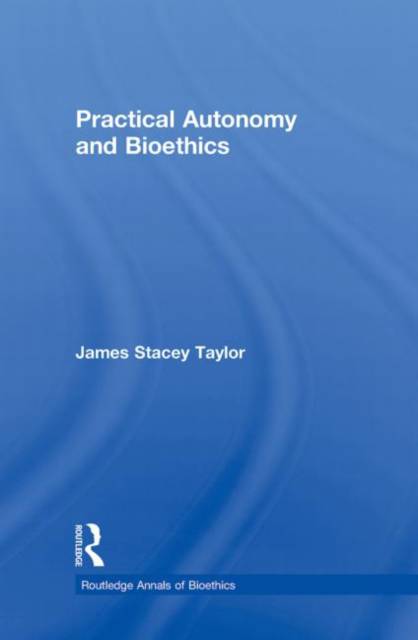
- Retrait gratuit dans votre magasin Club
- 7.000.000 titres dans notre catalogue
- Payer en toute sécurité
- Toujours un magasin près de chez vous
- Retrait gratuit dans votre magasin Club
- 7.000.000 titres dans notre catalogue
- Payer en toute sécurité
- Toujours un magasin près de chez vous
Description
This is the first volume in which an account of personal autonomy is developed that both captures the contours of this concept as it is used in social philosophy and bioethics, and is theoretically grounded in, and a part of, contemporary autonomy theory. James Stacey Taylor's account is unique as it is explicitly a political one, recognizing that the attribution of autonomy to agents is dependent in part on their relationships with others and not merely upon their own mental states. The volume is distinctive in its examples, which touch on the ethics of using inducements to encourage persons to participate in medical research, the ethical issues associated with the use of antibiotics, and the ethical basis for both patient confidentiality and informed consent.
Spécifications
Parties prenantes
- Auteur(s) :
- Editeur:
Contenu
- Nombre de pages :
- 228
- Langue:
- Anglais
- Collection :
Caractéristiques
- EAN:
- 9780415890564
- Date de parution :
- 06-01-11
- Format:
- Livre broché
- Format numérique:
- Trade paperback (VS)
- Dimensions :
- 152 mm x 229 mm
- Poids :
- 699 g







